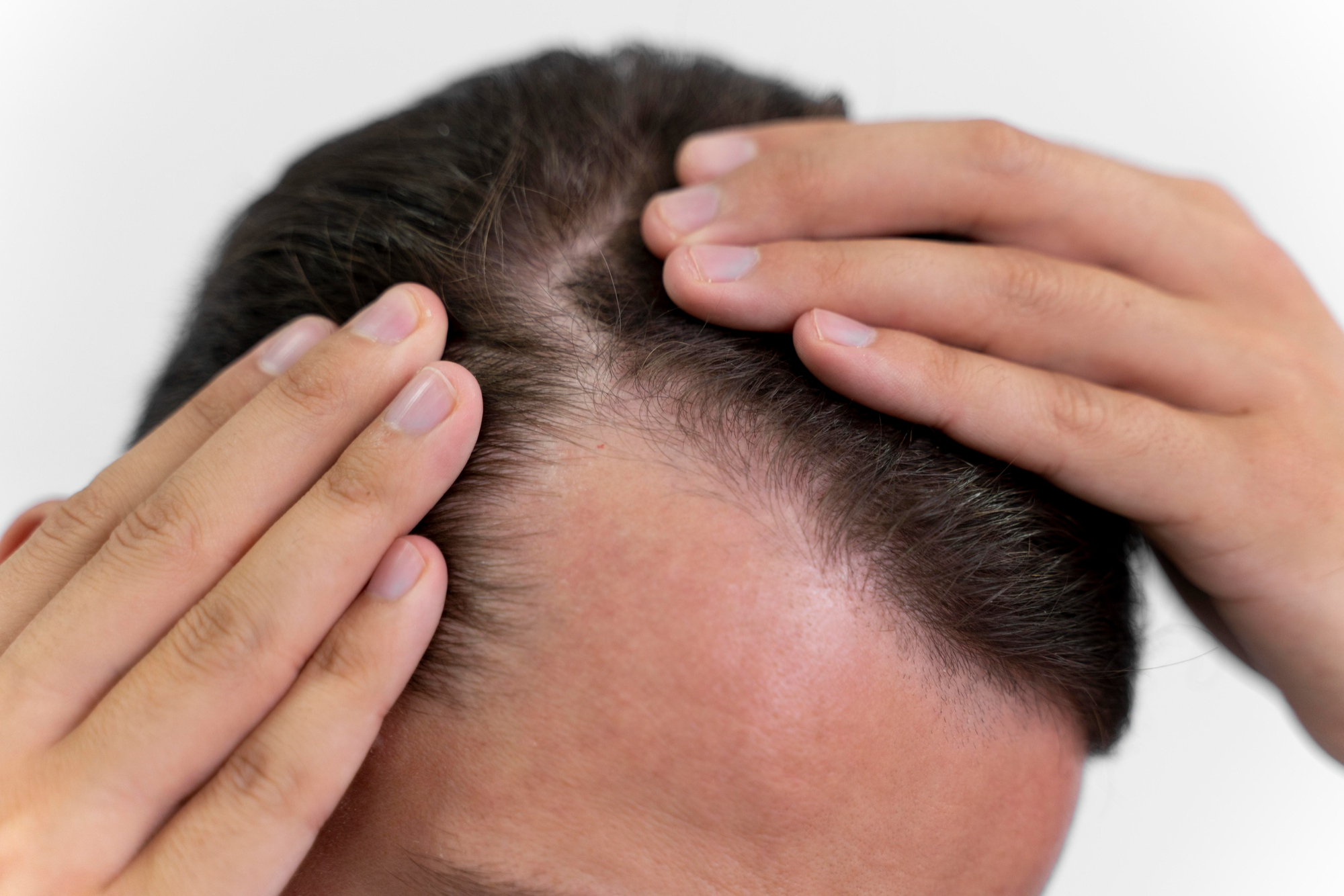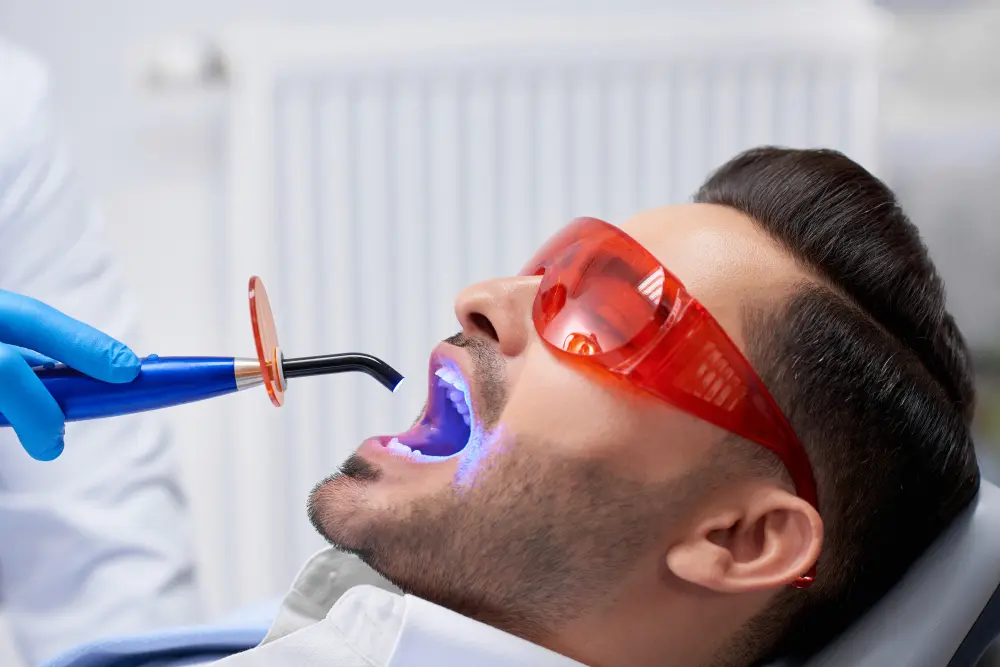Hair loss is a common issue that affects many people, leading to a lowered self-confidence and reduced quality of life. Hair transplant surgery is a procedure that can help restore hair growth and improve appearance.
What is hair loss?
Alopecia (baldness) can be localized to one area or affect the entire body; it can also be either temporary or permanent. Hereditary factors, hormonal shifts, medical conditions, and the natural aging process are all potential causes. Either sex can experience hair loss on their heads, though men tend to be more susceptible.
Excessive hair loss on the scalp is the most common definition of baldness. The major cause of baldness is hereditary hair loss associated with advancing age. There are those who would rather let their hair loss progress naturally, without trying to cover it up.
People may attempt to conceal themselves by altering their looks with hair, makeup, hats, or scarves. People with hair loss may try treatments to stop the loss or stimulate new hair growth.
Consult your doctor about the source of your hair loss and potential treatments before making any decisions about how to proceed.
Types of hair loss:
- The crown of one’s head is gradually becoming bald.
- Round or spotty areas of hair loss.
- Unexpected hair loosening.
- Lack of hair on every part of your body.
- Spreading flaky patches on the scalp.
What are the common causes of hair loss?
Between 50 and 100 hairs fall out of a person’s head every single day. Because new hair grows at the exact same time, this is often unnoticeable. When shedding hair isn’t replenished the result is hair loss.
Hair thinning is often caused by one or several of the following:
- Descendant Tree (heredity)
The majority of people have hair loss as a result of a genetic disorder. This also worsens with age. Androgenic alopecia refers to both male and female pattern baldness.
Women experience thinning hair at the scalp, and men with receding hairlines. These are common signs of the same condition.
- Alterations in hormone levels and diseases
Hormones can cause temporary or permanent hair loss due to pregnancy, delivery, menopause, and thyroid issues. Hair loss can be due to medical conditions such as alopecia areata, fungal infections of the scalp, and trichotillomania.
- Pharmaceuticals and nutritional aids
Certain medications used to treat cancer, arthritis, depression, heart disease, gout, and high blood pressure may cause hair loss.
- Therapeutic degradation of the scalp
It’s possible that the hair won’t regrow exactly as it was. Over the course of a few months following a traumatic event, many people notice an overall thinning of their hair. You won’t experience permanent hair loss if you have this treatment.
- Over-styling your hair
Traction alopecia is a type of hair loss resulting from styling hair too tightly, such as in pigtails or cornrows. Hair loss can be brought on by permanents and other heat-based hair treatments.
What is a hair transplant?
The majority of us take our hair for granted, just like our health and youth, until they’re gone. Many people can get the look of more hair with a hair transplant.
Surgery may improve your self-confidence if you are feeling embarrassed about thinning or balding your hair. First, discuss the procedure and its aftermath with your doctor.
Sixty percent of men and fifty percent of women suffer from hair loss at some point in their lives. Hair transplantation is a great way of repair. Transplanting hair from one part of the scalp to another might help cover up bald spots or thinning hair.
Hair transplantation, or hair transplants, is a procedure used when other treatments for hair loss have not been successful. Hair transplants are typically performed by medical professionals with advanced training.
What are the benefits of a hair transplant?
Both sexes experience hair loss to varying degrees. This condition can have various causes, some of which may be temporary and others that can cause permanent hair loss. Here are some benefits of hair transplant:
- Enhanced Physical Appearance
The hair transplant restores your ability to proudly display a full mane of hair. Inevitably, this raises one’s sense of self-worth by making one look better.
- In search of a long-term answer
Because it is permanent, hair transplant surgery can alleviate the anxiety that comes from worrying about your hair loss long-term.
- No thinning areas = more assurance
You will no longer be embarrassed by your baldness, which may have kept you from interacting with others. The hair transplant procedure has given you the confidence to go out and meet new people.
- Disregardful Upkeep
Hair transplant surgery requires much less upkeep than other operations, which can save both time and money in the long run. As soon as the hair follicles begin producing hair, only routine care is required.
- Efficient in terms of costs
After a hair transplant, a doctor may give antibiotics and pain medication to help ease any discomfort. Consider cheaper options, but be aware they may be more expensive in the long term due to needing regular clinic visits. In contrast, hair transplant surgery is a one-time cost.
- A Very Promising Success Rate
Hair transplant surgery is effective, but there are alternative solutions if you don’t want to go down that route. It’s for this reason that many people opt to get this done.
- Minimal Risk of Complicacies
Due to the fact that hair transplant surgery only involves the scalp, it is considered a minimally invasive technique. Because of this, the likelihood of problems after this surgery is extremely low.
- Low likelihood of adverse effects
The risk of complications is much lower because the area is not being invaded and general anesthesia is not used.
- No chemical treatment
This method yields your own natural hair, as opposed to the synthetic hair used in wigs and weaving. That’s why they won’t make your hair look fake or unnatural.
- No Prescription Drugs for the Future
A doctor may prescribe antibiotics or painkillers to ease any post-surgery discomfort after a hair transplant.
Who is eligible for a hair transplant?
The following conditions may make you a good candidate for hair transplantation:
- Being healthy and well.
- No extremely high hopes for the treatment
- The abundant hair growth on your scalp is still present.
- A hair transplant for men and women of any race is a very viable option.
You can ask your dermatologist during your appointment. In a dermatologist appointment, your scalp will be examined carefully.
Restore youth to your hair with EsteConfido.
It’s hard for patients to understand different opinions about hair transplants and get their questions answered. If you’re looking for a hair transplant, Turkey is your best option. High-quality hair transplants in Turkey for significantly lower costs.
Contact us to book an appointment with our hair experts. We will examine your scalp and suggest the best hair transplant procedure and its cost and recovery period.





